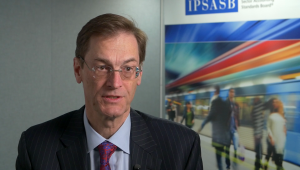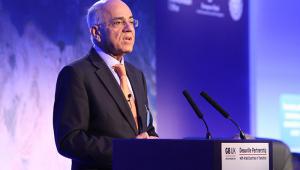By Vivienne Russell | 13 November 2013
Attempts to implement ‘cutting-edge’ public financial management reforms such as programme budgeting and accruals accounting in developing countries are often premature, the director of the International Monetary Fund’s Africa department has warned.
In her keynote address to the Overseas Development Institute’s annual Centre for Aid and Public Expenditure conference in London today, Antoinette Sayeh said international efforts should instead focus on helping countries get the ‘basics’ of PFM right.
‘These basics are critical for fiscal policy,’ she told delegates. They included reliable projections of key macroeconomic and fiscal indicators, a credible annual budget, fully functioning input accounting, efficient cash management, comprehensive and reliable control systems and a robust system of external audit and oversight.
‘But even the audit and oversight basics can be hugely complicated and indeed circumvented by dysfunctional parliaments in post-conflict environments,’ Sayeh – the former finance minister of Liberia – observed.
‘So basics are anything but easy. That’s certainly been the case in my experience.’
PFM reforms needed to be ‘well-tailored to the country and genuinely owned by national government, rather than responding to the sometimes fleeting needs of donors and international financial institutions.’
Reforms should also be carefully sequenced so the most severe weaknesses received priority. ‘Once basic standards are met in poor PFM functions, more demanding reforms can then be initiated.’
She noted it had taken decades to develop and implement a high quality PFM regime in developed countries like New Zealand and Singapore. These nations provided useful long-term objectives for ambitious reformers, she said, but added: ‘Most low-income countries should focus on more down-to-earth objectives.’
She pointed to Ethiopia as a good example of a country that had established good, basic PFM reforms over time and had significantly strengthened its cash management. It was now aiming for the gradual introduction of output orientation in its budgeting.
Sayeh also called for a more assertive approach from PFM experts providing technical assistance on the ground.
‘The IMF and the donor community should not only be observers and analysts of the political economy in a country, but a reasoned voice in the process.’
They needed to influence ministers, legislators and civil society leaders by setting out the consequences of weak PFM and presenting realistic reforms, she added.
‘That’s not to say we are full participants in the political process, but we absolutely should have a voice in advising in it, and in steering the process to the extent that advice can.’
Looking to the future, Sayeh noted that fresh challenges lay ahead with the discovery of oil and mineral deposits in many African countries. There was a danger that – if large windfall profits hit weak PFM systems – the resulting revenue could result in unsustainably high public spending and loss of budgetary controls. Incentives to reduce waste would also be diminished.
‘It is urgent that we make progress in establishing good PFM practice now so countries are prepared to manage natural resource revenues,’ she said.
‘The international community has a role to play in providing assistance that strengthens the weakest links first.’













